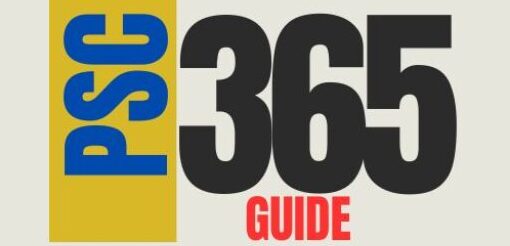Aspirants who are preparing for UPSC Civil Services Exam or the Telangana State Public Service Commission (TGPSC/ TSPSC) Exam while doing a a full-time job, this article is specially for you. Working Professionals who want to make their career more secured generally choose a job in government sector. But cracking UPSC or other state PSC is not same as getting a secured job. If you look at the level of competition and the vast syllabus candidates have to cover it is not an easy task for working professionals to crack UPSC , but it is not out of question. With a clear plan, it is possible for every one with limited time to prepare for the exam.

The trick is to create an organized one-year study schedule which balances professional obligations and a focused approach to preparation. This guide offers a comprehensive plan, timetable for studying and a subject-specific approach that is designed for professionals who work.
Why Working Professionals Struggle in UPSC/TSPSC Preparation
- The time limit : The office hours take up most of the day, so they find very less time to prepare.
- Mental fatigue : Work stress reduces focus during study hours.
- Inconsistency : Constant work disruptions influence revision.
- A lack of a strategy : Many aspirants spend their time with various resources. This is the main culprit for anyone who fails to crack any exam.
A well-planned plan that is disciplined, with time-blocking, intelligent strategies for studying, and the right choice of resources can help you overcome these difficulties.
Offline Vs Online Coaching for UPSC and other state PSC’s
Is it possible to prepare for UPSC without Coaching ?
One-Year Study Plan: Month-by-Month Roadmap
Phase 1 (Months 1-3): Foundation Building
- Understand the Syllabus & Exam Pattern
- UPSC Exam Prelims (GS and CSAT), Mains (9 papers) Interview.
- TSPSC: Prelims (GS + Mental Ability), Mains (Descriptive/Objective).
- NCERTs (Class 6-12) – Read History and Geography, as well as Polity, Basics of Science and Economy.
- The Daily Newspaper Reading (The Hindu/Eenadu) 45 minutes maximum. The focus is on editorials and specific state news.
- Static Subjects of GS Start by introducing Indian Polity (Laxmikant) as well as Modern History (Spectrum).
Goal: Develop strong foundations and complete NCERTs plus 2 core subjects.
Phase 2 (Months 4-6): Subject Mastery & Current Affairs
- Advance Reading
- Geography (GC Leong + Atlas practice).
- Economy (Ramesh Singh + Budget/Economic Survey).
- Telangana History, Culture & Polity for TSPSC.
- Current Affairs : Use Monthly compilations (Vision IAS and Drishti as well as TSPSC websites).
- CSAT/Arithmetic Practice 2 hours per week.
- Answer writing (Mains Concentration) : Start writing 2 to 3 answers each day using PYQs.
The goal is to Learn about all the major subjects in one go, then make notes, and then begin writing the answers.
Phase 3 (Months 7-9): Intensive Practice & Revision
- Prelims-Centric Preparation
- Complete daily MCQs in the test series.
- Review static subjects many times.
- Examine previous UPSC/TSPSC exam papers.
- Essay and ethics (for the UPSC Mains) – Practice one essay every week.
- Additional Subject (UPSC only) – Dedicate 1-2 hours per day.
- Review Cycles Use the 32-1 approach (Revise within 3 days – 2 days – 1 full day).
Goal: Build exam temperament Find weak spots, increase accuracy.
Phase 4 (Months 10-12): Exam Readiness
- Prelims Final Prep
- Complete full-length mock tests two times every week.
- Review Current Affairs from the last 1.5 years.
- Concentrate on accuracy and time management.
- TSPSC Focus
- Telangana Economy, Society, and State Policies.
- Revise Telugu medium/state-specific materials.
- Mains Preparation
- Keep writing daily answers.
- Review notes that you can make optional repeatedly.
The goal: Enter exam hall with complete confidence clarity, confidence, and repeat repetition.
Daily Routine for Working Professionals
- morning 5 AM to 8:30 AM): Core subject study and revision.
- Office Lunch break (30-45 minutes): Read newspaper or review notes.
- Evening (7 9 – 10 pm): Practice MCQs Answer writing, or an other topics that are available.
- Weekends (6-8 hours per day): Full-length tests and essays as well as subject matter that is specific to the state.
Resource List (Selective and Time-Saving)
- Polity: M. Laxmikant.
- History: Spectrum for Modern History, NCERTs for Ancient & Medieval.
- Geography: NCERTs + GC Leong + Atlas.
- Economy: Ramesh Singh + NCERT + Economic Survey Highlights.
- Environment: Shankar IAS book.
- Telangana Specific (TSPSC): Telangana History, Economy, Society books by Telugu Academies.
- Current Situations: The Hindu, PIB, Yojana, Telangana government websites.
Tips for Success as a Working Professional
- Quality Over Quantity : 4 hours of focused time each day > 8 hours of distraction.
- Micro-Notes : Summary subjects into one-pagers to allow last-minute revision.
- Persistence : Just 2 hours per day during workdays can add more than 700 hours over the course of a year.
- Digital tools : Use Evernote/Notion to do note-taking, and Telegram groups for updates.
- Health and Discipline : Sleeping in a healthy way as well as exercise and social distractions.
Conclusion
Balancing the full time job and your UPSC/TSPSC preparation is a challenge but is achievable by using an an organized one-year timeline that is consistent and smart strategies. Professionals generally get very less time for preparation so studying with focus, time management and continual revisions is a must. Aspirants must zero in on the preparation during the limited they get while involving in office related activities. If done with a sincere effort, this method can turn limited hours into an effective strategy to get through the exam.
